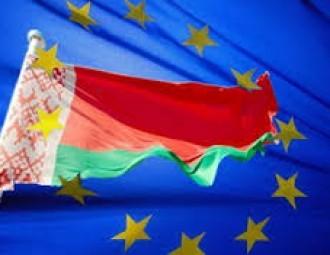Diplomatic communication between Belarus and the EU has increased, European civil officer says
31.01.2014 | Politics

According to the member of the EU Delegation to Belarus, “2013 was better than 2012”.
Rodolphe Richard, head of Political, Press and Information Section at the EU Delegation to Belarus, said in Minsk on Thursday that the European Union was not ready to compromise on the issue of political prisoners, said.
There are certain barriers to the complete normalization of relations between the EU and Belarus that cannot be removed without specific steps by Belarus, BelaPAN quotes him speaking during a round-table conference focusing on the relationship between Belarus and the EU following the November 28-29 Eastern Partnership summit in Vilnius.
Mr. Richard noted significant improvements in the relationship last year. “In any case, 2013 was better than 2012,” he said. “The EU suspended its sanctions against the foreign minister. He is still on the list [of Belarusians subject to EU travel bans and asset freezes], but, as long as he is foreign minister, he may travel, obtain a visa. Diplomatic communication between Belarus, the European Union and the member countries has increased.”
Aleh Shloma, a senior official at the Belarusian foreign ministry’s European Cooperation Directorate, said that the government was familiar with the EU’s demands regarding its imprisoned opponents. However, this is not the only barrier for cooperation between Belarus and the EU, Mr. Shloma said. Even if these people leave prison tomorrow, Belarus will not automatically become a great friend of the EU that is showered with its money, he said.
Mr. Shloma called for a “critical mass” of positive mutual steps to remedy the situation. “Let us not expect something impossible, things that cannot happen yet,” he said, adding that they might happen under the right circumstances.
Commenting on Aliaksandr Lukashenka’s recent remarks about behind-the-scenes talks between EU diplomats and Belarusian authorities, Mr. Shloma said that such contacts were common practice around the world. “There’re several levels of discussing various issues,” he explained. “Look at the example of other countries that have experiences tremendous problems in relations with global centres of power until recently, Iran, for instance. Nevertheless, we can see very serious progress, a result of not only public diplomacy.”
-
03.01
-
07.10
-
22.09
-
17.08
-
12.08
-
30.09








































